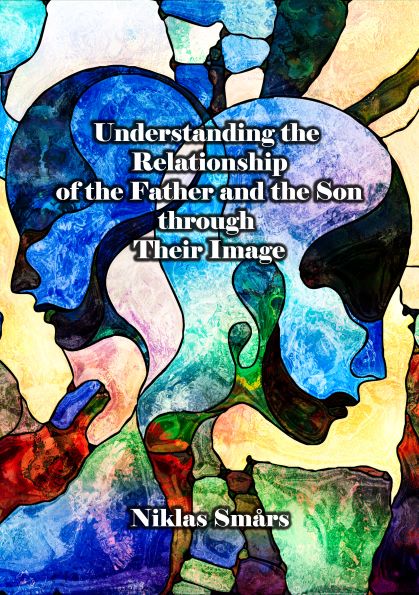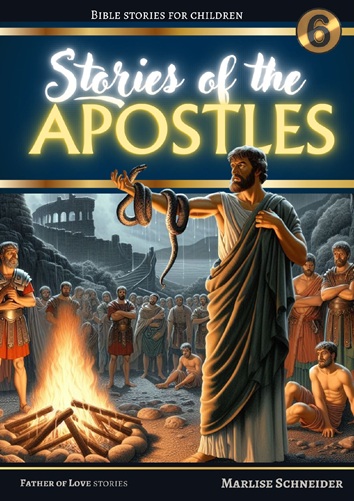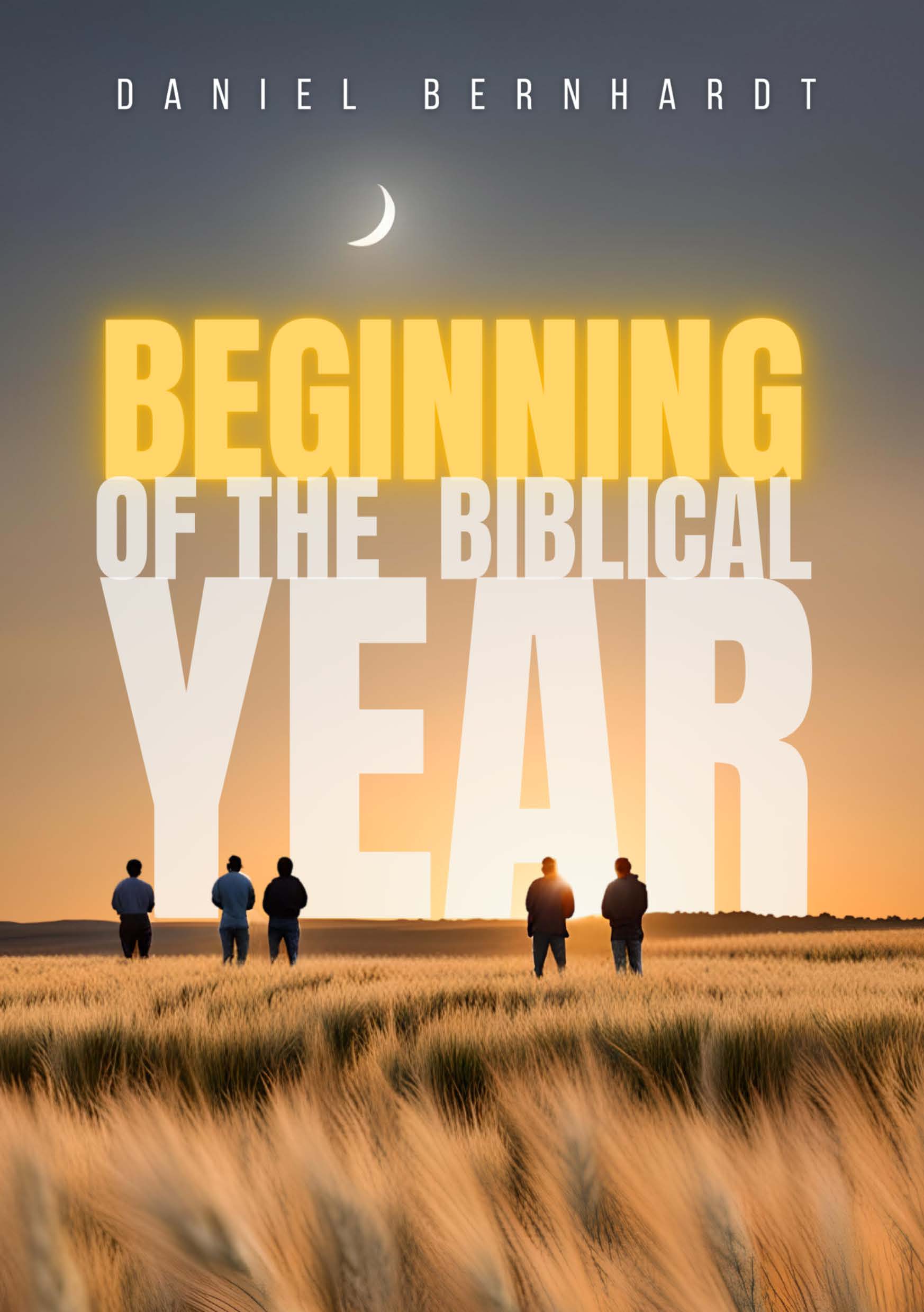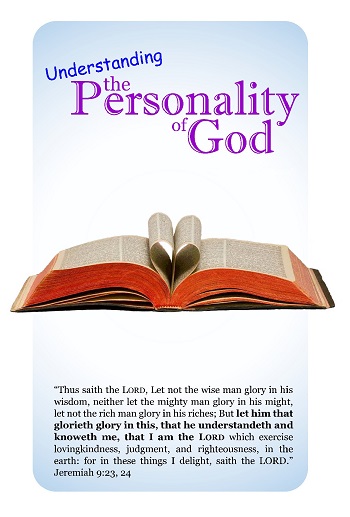Reflections on the Father and His Son
Our evaluation of God is either based on self-imposed philosophical considerations or the acceptance of meaningful relationships.
Why am I attracted to the Character of God message? For me, personally, it is the increased admiration I have discovered in a God who never loves His creatures less; where His justice is but a reflection of His infinite mercy.
Why am I drawn to accept the message of Christ Our Righteousness? Because I find great comfort in the realization that when I am “in Christ” the responsibility to “work and to do of His good pleasure” is entirely His.
Why have I gladly accepted the Fatherhood of God and His literal Son? Because my admiration for God is enhanced by the realization that He “spared not” His real Son (or as Ellen White states, ‘a part of Himself’--1888 Materials p. 712), and because Jesus is a real Example of submission and obedience with which I can identify and follow.
For me, knowing “the Spirit of His Son” has completely transformed my Christian experience, giving me a joy in really knowing the only true God and Jesus whom He has sent—twice! Because God the Father loved the world so much, He “sent His only-begotten Son into the world” (1John 4:9) “to be the Saviour of the world” (verse 14). That was the first time. Then, because the Comforter could not come until Jesus returned to his Father (John 16:7), “God sent forth the Spirit of His Son into our hearts” (Gal 4:6). Now his Spirit is in us, abiding in us, dwelling in us, even as his Father’s Spirit was in Jesus (John 14:10). I know who Jesus is, and now I know his Spirit as well.
Some say they can’t see why understanding the Father and Son is present truth. Present truth is the truth as it is in Jesus wherever Jesus is at the present time.
- Present truth for the apostles on the day of Pentecost AD 31, was that Jesus was raised from the dead by God his Father and had ascended to his Father’s throne where he received the promise of his Spirit which he then poured out upon his believing disciples (Acts 2:32,33).
- Present truth for the Adventist pioneers in 1844 was that Jesus had entered into the Most Holy place and was now taking up his work as our High Priest in the Day of Atonement work of cleansing not only the heavenly sanctuary but our body temples as well through the sanctifying work of his Spirit in our lives.
Does it make a difference who we understand this Spirit to be? The Spirit of Jesus or another separate Spirit? I believe it makes as much difference as understanding who we believe our own spirit to be. Can my spirit function as a self-aware entity separate from my body? If so, I am vulnerable to accepting such notions as “out of the body” and “life after death” experiences.
Those who accept the plain reading of Scripture, that God is the Father of Jesus and Jesus is “the Son of the Father in truth” (2John 1:3) cannot understand an indivisible composite triune god, and they despair the loss of identity which results in making them merely first and second (and third) persons because the designations of “Father” and “Son” are regarded as merely functional titles rather than the reality of who They are. From this perspective, such titles/roles are not real at all, but only deceptive jargon. One must wonder, Can God be trusted?
If we demand "perfectly symmetrical equality among the hypostases of a triune deity," such that what one does the other does, that there is no real difference between person one and person two or person three, that “if the Father had come to earth” and died on the cross we couldn’t have detected any difference, because each of the three are fully independent, self-existent, self-sufficient divine beings in their own right—then the prospect of a single God who brings forth from Himself a perfect image of Himself (Heb 1:3) to be His mediator (2Tim 2:5; Gal 3:20), His representative, His Word to the creation, is irreconcilable with the premise of absolute equality.
But Jesus said that the oneness which existed between himself and his Father was based on his knowledge of the Father. “No man knows the Son, but the Father; neither knows any man the Father, save the Son, and he to whomsoever the Son will reveal Him” (Matt 11:27). This knowledge is the basis upon which we can experience eternal life (John 17:3) and will make us “one even as” the Father and Son are one (John 17:11,22).
When consideration is given to the term “begotten”/”brought forth” (monogenes/yawlad) in regard to the origin of Christ, misgivings regarding its application are unavoidable depending on a person’s a priori assumptions. If we predicate the notion of eternal independent self-existence as prerequisite qualifications for divinity (such as postulated by a triune deity concept), then contemplation of a divine birth must be rejected as incompatible with the pre-established requirements of our definition. Does the Word of God impose such philosophical constraints on the Eternal nature of Christ?
Before answering this question, let us recognize the distinction which inspiration makes between the identity of God and the nature of God. Confusion will result if we allow ambiguity in our expression of the term God.
The Identity of God
God is recognized as the distinct individual identified in Scripture as “God the Father” (John 6:27; Gal 1:1,3; Eph 6:23; Phil 2:11; 1Thes 1:1; 2Tim 1:2; Titus 1:4; 1Pet 1:2; 2Pet 1:17; 2John 1:3; Jude 1), “God the Father of whom are all things” (1Cor 8:6), “the Ancient of days” (Daniel 7:13) who is a separate entity from “the Son of man”, and “the Lord God Almighty” who is distinguished from “the Lamb” (Rev 21:22). Ellen White makes this same distinction. She identifies God the Father as “the great Source of all” whose life flows out to all creation through the Son (DA p. 21), “the Soverign of the universe” who has “an associate—a co-worker” (PP p. 34), “the King of the universe”, “the eternal self-existent One” (PP p. 36), “Jehovah” who looks upon “His Son” (AA p. 209), “Jehovah” who declares “This is my beloved Son” “testifying to the divinity of Jesus” (DA p. 116), “Jehovah and the gift of His Son” (GW p. 131 1892).
The Nature of God
God can also refer to the divine nature, of being God in nature. Christ, as the Son of God, “has by inheritance a better name” (Heb 1:4), “a name which is above every name” (Phil 2:9), the name of his God (Rev 3:12), for his “name is in him” (Exodus 23:21). Thus, God his Father calls the Son, God. For “unto the Son He says, Thy throne, O God, is forever…Therefore God, thy God, has anointed you with the oil of gladness” (Psalm 45:6,7; Heb 1:8,9). The Word [the Son] was with God [the Father] and the Word was God [in nature but not in the person of the Father]. Thus Ellen White could write, “The Lord Jesus Christ, the only begotten Son of the Father, is truly God in infinity, but not in personality” (MS 116, Dec 19, 1905 in Upward Look p. 367).
So, what does the Bible have to say about the divine Son of God who is truly God in his infinite divine nature, but not in his identity separate from the Father?
Scripture describes God in terms of eternity—
He is “from everlasting” (Hab 1:12),
“from everlasting to everlasting” (Psalm 41:13; 90:2; 93:2; 103:17; 106:48).
He is “the everlasting God” (Gen 21:33; Isa 40:28; Rom 16:26),
“the eternal God” (Deut 33:27),
“the everlasting King” (Jer 10:10),
“the King eternal” (1Tim 1:17).
He “inhabits eternity” (Isa 57:15).
This being so, then it is “clearly seen” that whatever comes from God such as His power is eternal (Romans 1:20) and everlasting;
His Spirit is eternal (Heb 9:14);
His truth is everlasting (Ps 100:5);
His righteousness is everlasting (Ps 119:142);
His kindness is everlasting (Isa 54:8);
His love is everlasting (Jer 31:3);
His light is everlasting (Isa 60:19,20);
His name is from everlasting (Isa 63:16);
His arms are everlasting (Deut 33:27);
His house is “eternal in the heavens” (2Cor 5:1); its doors are everlasting (Ps 24:7);
His purpose is eternal (Eph 3:11);
His salvation is eternal (Heb 5:9);
His redemption is eternal (Heb 9:12);
His judgment is eternal (Heb 6:2);
His kingdom is everlasting (Ps 145:13);
His covenant is everlasting (Jer 32:40).
The life that he gives us is eternal (John 10:28; 17:2).
But we are dependent on His life, His Spirit, for he can take it back.
“The spirit of God has made me; the breath of the Almighty has given me life” (Job 33:4)
“You send forth your Spirit, they are created” “You take away their breath, they die” (Psalm 104:30). We do not have life in ourselves. We are not self-existent.
Life in Himself
However, “as the Father has life in Himself, so has He given the Son to have life in himself” (John 5:26)—everlasting, eternal, self-existing Life. Scripture does not tell us when or how the Father gave the Son to have life in himself, it only informs us that it was “in the beginning”, “before ever the earth was”, “before the mountains”, “before the hills”, “from of old, from everlasting” (John 1:1; Prov 8:22,24; Micah 5:2).
Christ had several Beginnings
The divine person we know as Jesus the Christ, the son of Mary, was born in Bethlehem. His birth, which we call the incarnation, marked the beginning of the Son of man on earth. It wasn’t until “the fullness of time” that God was manifest in the flesh for the very first time.
This was a new beginning for the Son of God, appearing, in a form that had not previously existed. He was previously in the form of God (Phil 2:6) but now was found in the form of man (verse 7). A body was prepared for him (Heb 10:5; Psalm 40:6); the Word became flesh (John 1:14).
Before Bethlehem
There is abundant evidence that before he was born as Jesus of Nazareth, the Son of God pre-existed as the “angel of the Lord,” “the angel of His presence” (Isa 63), the “messenger of the covenant” (Mal 3:1), Michael the Archangel, who was opposed by Lucifer, the Devil, that old serpent and Satan (Rev 12:7,9), and was commander of the Lord’s host (Joshua 6), the man who was God’s fellow (Zech 13:7).
It was in this form that he was the mediator between God and men (1Tim 2:5) and angels. Some have taken issue with this last assertion, explaining that before sin there was no need for a mediator. This is true only when mediation is considered in the case where there is a dispute between two parties and a third party mediator arbitrates between the two. But mediation is not limited to disputes. It can also be employed to prevent grievances and misunderstanding by communicating, maintaining awareness, and keeping all parties informed. This was the eternal role of the Word who, in the express image of God, could speak for Him.
“I sought for a man among them, that should make up the hedge, and stand in the gap before me for the land, that I should not destroy it: but I found none” (Eze 22:30) “I looked, and [there was] none to help; and I wondered that [there was] none to uphold: therefore mine own arm brought salvation unto me” (Isa 63:5). “The LORD said unto my Lord, Sit thou at my right hand, until I make thine enemies thy footstool” (Psalm 110:1). Jehovah said to Adonai, be my mediator.
So, Michael (“who is like God”) was the Son of God, manifesting God to the angel creation. He is the eternal mediator. But was he always Michael the commander of the angelic host?
Before Michael
Before he created the angels—for the Son made the worlds (Heb 1:2) and created all things (Eph 3:9, Col 1:17; John 1:2)—he would have no angels to command. He would have no one with whom to mediate. Thus Michael, though he was in the form of God, began at some point to be the Archangel Creator of angels, mediating between them and the Father.
Thus, Jesus of Nazareth pre-existed as Michael the Archangel. But Michael was not just an angel; he was the Son of God, the Word of God, who was with God in the beginning, “possessed” by the LORD Jehovah (Prov 8:22). As the Word of God and the breath of His mouth, he made the heavens and all the host of them. He spoke and it was done, he commanded and they stood fast (Psalm 33:6,9) by the power of his Father’s might (Heb 1:3). He was the Son of Him who established all the ends of the earth (Prov 30:4). “Christ is our Example. He was next to God in the heavenly courts.” (Letter 48, 1902 in Notebook Leaflets from the Elmshaven Library Vol. 1 p. 114).
Before the Word
But before he was the Word of God (Rev 19:13), the beginning of His ways (Prov 8:22), he was “the wisdom and power of God” (1Cor 1:24). He was “God’s thought made audible” DA p. 19. Before he was the Word, he was God’s thought, God’s wisdom, “the hidden wisdom of God which He ordained before the world” (1Cor 2:7). Thus the Word had a beginning, when the Wisdom of God became the Word “that proceeded out of the mouth of the LORD” (Deut 8:3), “out of the mouth of God” (Matt 4:4), when he was “brought forth” long before the mountains or hills or seas or ever the earth was (Prov 8:23,24).
But the wisdom and power of God has no beginning; he was always before Him as one brought up with Him, daily His delight (Prov 8:30). As the wisdom of God, he knows the Father as no one else can (Matt 11:27) for he has always been in the Father’s bosom (John 1:18) and the Father in him (John 14:9), one with each other (John 10:30). He is equal with God because he is in the form of God (Phil 2:7) and because God is his Father (John 5:17).
Ellen White identifies Christ in this manner,
“Every sentence He uttered came from God. He was the Word and the Wisdom of God, and He ever presented truth with the authority of God.” Fundamentals of Christian Education p. 407,408; Atlantic Union Gleaner, Jan 27, 1909
Need we probe the mystery of Godliness beyond what Scripture reveals? Dare we ask what Christ was before he was begotten of the Father? The question is often asked, Would such a pre-existence deny or preclude him from being a "self-aware person?"
The Bible speaks of self-awareness in 1Cor 2:11. “Who knows the things of a man, save the spirit of man which is in him?” This rhetorical question is answered in the next sentence, “Even so no man knows the things of God…” We know our own thoughts, we are self-aware, but no other man knows them. God, however, knows our thoughts. He can “understand my thought afar off” (Ps 139:2). Our thoughts may become known to others when we express them in word and deed. “Out of the abundance of the heart (mind) the mouth speaks” (Matt 12:34). Ellen White applies this principle to God when she wrote, “Who is Christ?--He is the only begotten Son of the living God. He is to the Father as a word that expresses the thought,--as a thought made audible. Christ is the word of God.” (Youth’s Instructor June 28, 1894). Four years later she made the simile explicit: “He [Christ] was the Word of God—God’s thought made audible” (DA p. 19).
The Father's thought is expressed as His Word. The Father's thought is made audible and creation hears the Word of God. This may be the closest we can come to exploring the question of the Word’s self-awareness prior to being “made audible.” Does it matter? How much more intimately related to God can one be? Certainly God’s thought is not inactive before it is made audible. God’s thoughts are not our thoughts. Must we impose restrictions on God because of our limitations?





